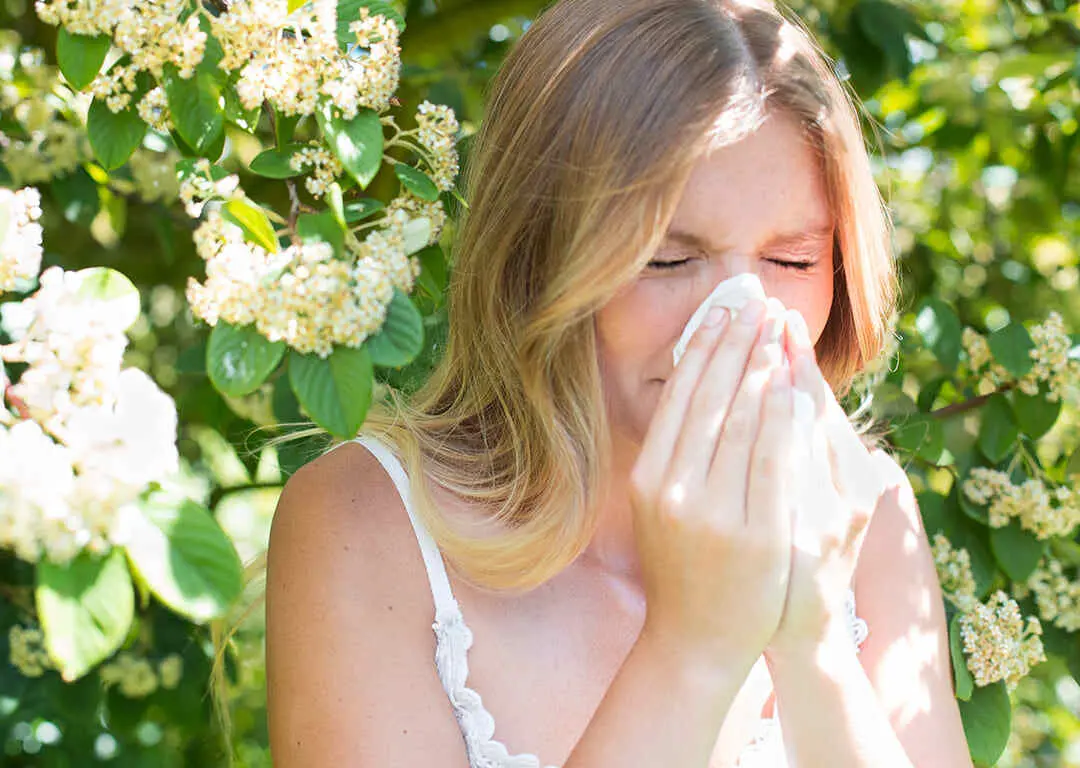What Is Pollen?
A common misconception that one may have is that they are allergic to plants. In reality, it is the pollen produced by plants that causes your allergy symptoms.
Pollen grains are small, light, and dry substances that resemble a powdery, fine dust. These pollen grains can stick to your skin and your surrounding surfaces. It is designed to be spread from one plant to another for fertilization, so it moves about freely.1
However, pollen travels differently depending on the plant. People who have a pollen allergy are more likely to come in contact with pollen from trees, weeds, and grasses. This is because these plants disperse their pollen in the air for the wind to carry. One the other hand, flower pollen is carried by insects for fertilization. As such, reacting to pollen from flowers is less likely as very little flower pollen gets dispersed into the air.
In Canada, you would generally experience weed pollen this time of year, which is late summer to early fall. Tree pollen peaks in the winter and spring months, while grass pollen is more prevalent from late spring to midsummer. Also, peak pollen times include midday and afternoon times, as well as hot and windy days.2
How Does Pollen Trigger Allergies?
While pollen is a normal part of nature, some of us may not react favourably to it. If you are allergic to pollen, your body treats it as a dangerous substance and tries to fight it off. It does this by having your immune system produce a chemical called histamine. This response is meant to be helpful, but it is responsible for the pollen allergy symptoms you experience.2
Common Pollen Allergy Symptoms
If you are allergic to pollen, it's common to experience certain symptoms. These include sneezing, coughing, runny nose, post-nasal drip, and the itching of the eyes, nose, and throat. The symptoms of pollen allergy can range from mild to severe and can also include skin reactions such as hives.3, 4
Any outdoor environment can contribute to pollen allergies, as pollen spreads through the air and because grasses, trees and weeds are widespread in public places. Nonetheless, your allergies are most likely to be triggered in environments with a lot of plants, such as forests, parks, or gardens.
How to Manage Pollen Allergy Symptoms
There are a few ways you can reduce your exposure to pollen and manage your allergies more effectively. Here are some simple steps to try:5, 6, 7
Re-enforcing basic hygiene can help reduce your overall exposure to pollen. If you’ve been out all day, try to immediately shower and switch to clean clothes when you get home. This will help get rid of clinging particles.
If your eyes feel irritated, wash your face, and rise your eyes with saline drops. Pollen particles can enter your body through your mouth, nose, and eyes. So, remember to wash thoroughly.
You might be tempted to let that cool breeze in, but if you live near a garden or are surrounded by trees, considering keeping your windows closed during peak pollen times.
Limit your time outdoors during midday and afternoons where the pollen count is most aggressive.
If you must do outdoor chores, rotate it with another member of your family or wear protective gears such as goggles, masks, and gloves.
Avoid touching or being near plants with visible pollen.
Keep indoor air clean by using and changing your HEPA air filter regularly.
Home remedies can bring temporary and immediate relief – so don’t forget about them! Remedies such as using a cool compress on hives or rinsing your sinuses with a nasal spray to relief congestion, can help alleviate some of your pollen allergy symptoms.
Managing your pollen allergy sometimes require working in new habits into your daily routine. We recommend starting each day by checking the local pollen count via Reactine’s® pollen count tool so you are prepared for the day ahead. When the pollen count is high, take extra precautions like the lifestyle changes listed above. But don’t forget—you can always count on Benadryl® as your Over-the-Counter (OTC) antihistamine solution to relieve even the toughest of your pollen allergy symptoms! Benadryl® Allergy Caplets provide fast, effective relief of skin itch, hives, sneezing, itchy throat, and itchy nose.
If you’re looking for a stronger dosage, try Bendaryl® Allergy Extra Strength, it is just as effective and twice as tough on your allergy symptoms! Keep in mind that Benadryl® is not recommended for prolonged use unless your physician advises it. You should always follow the directions on the label and see your doctor if your allergy symptoms persist or worsens.
Overall, simple lifestyle changes can help reduce pollen allergy symptoms, and when you do experience them, Benadryl® can help. Always remember to seek guidance from a healthcare professional if symptoms persist or worsen.
